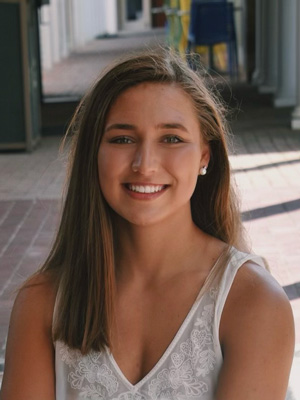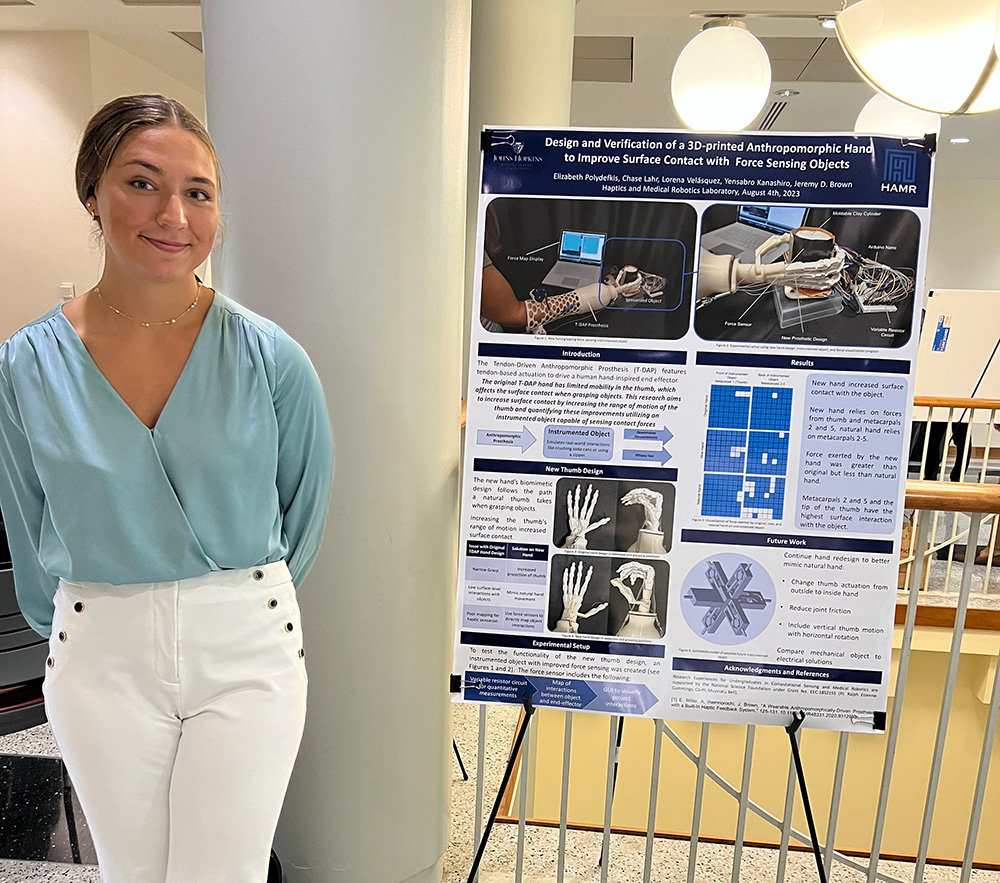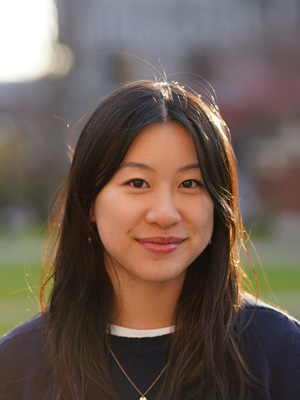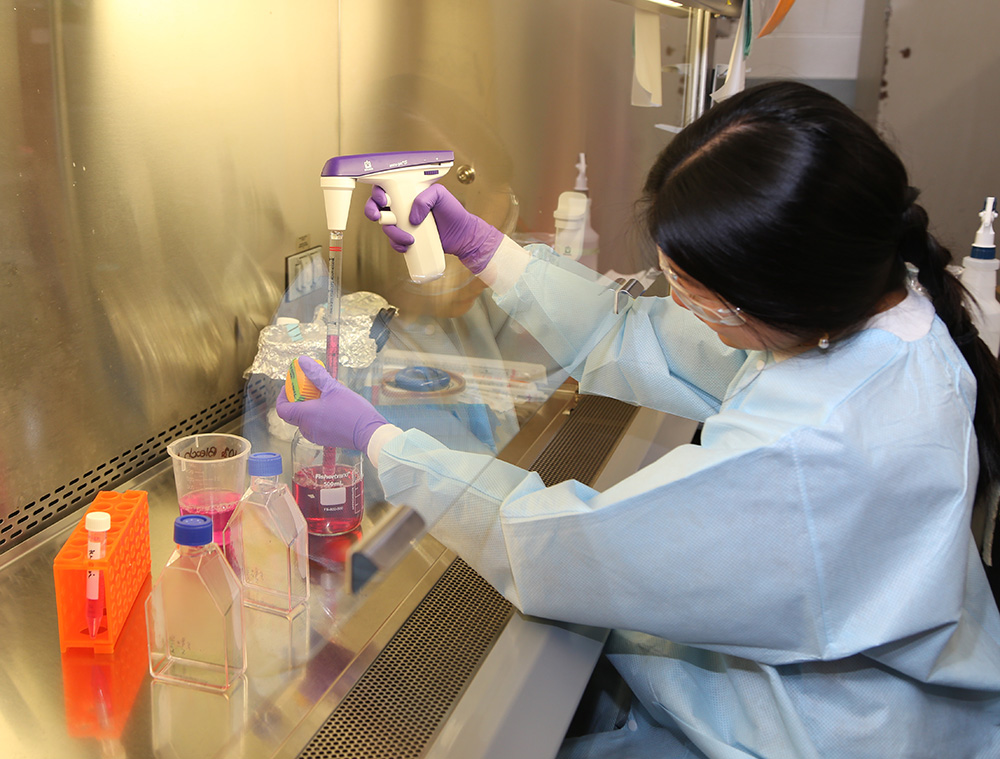Brown biomedical engineering undergraduate Elizabeth Polydefkis ’25 and bioengineering and international and public affairs concentrator Clara Tandar ’25 recently received Barry M. Goldwater Scholarships. Goldwater scholarships were established by Congress in 1986 to identify and support college sophomores and juniors with promising futures as researchers, and is widely regarded as one of the most prestigious undergraduate scholarships in America.

Polydefkis and Tandar join fellow Brown student Jennifer Wang (computer science) as recipients. This year, 438 winners were chosen to receive the award among a pool of 1,353 science, engineering and mathematics applicants. Winners are awarded up to $7,500 per full academic year to help cover costs of tuition, mandatory fees, books, and room and board. Goldwater Scholars, of which there have been over 10,000 since the program was founded in 1989, pursue Ph.D. programs at top research institutions and have an established record of earning further prestigious postgraduate fellowships, like Rhodes and Marshall scholarships.

Polydefkis’ career goal is to become a faculty member conducting research as part of an interdisciplinary team that develops medical devices and assistive technology to improve independence for those with disabilities. She is passionate about enhancing accessibility and independence for individuals with physical disabilities.
She spent a Computational Sensing and Medical Robotics undergraduate research summer experience at Johns Hopkins last year with Dr. Jermey Brown of the Haptics and Medical Robotics (HAMR) Lab. The HAMR lab introduces haptic feedback systems into 3D-printed upper limb prosthetics. Haptic feedback is any tactile feedback that you gain from physically interacting with an object – it allows you to determine the force needed to pick up an object or catch a ball. Persons without tactile sensation or impaired tactile sensation lack the dexterity required to complete daily activities efficiently and accurately. The objective of Polydefkis’ project was to optimize contact between the prosthetic and instrumented objects and to identify points of contact on the prosthetic, to facilitate accurate mapping of haptic feedback for the user.
This summer, she will work with Dr. Thomas Bulea on exoskeleton-mediated gait training in children with movement disorders at NIH as part of a Biomedical Engineering Summer Internship Program (BESIP). As a varsity crew athlete who transferred to Brown, her laboratory research experiences tend to take place over the summer, while experiences in the STEM to Stern and Society of Women Engineers keep her busy during the school year.
“Growing up with a father with a progressive neurologic condition, I realize how hard it is to work in and contribute to today’s society with a physical limitation,” she said. “Seeing the creative adaptations my father has made to his laboratory instruments, shoes, gardening tools, and sports equipment so that he can work and enjoy his passions was a huge reason why I wanted to become an engineer in the first place. I am interested in pursuing a career in medical device research and development because I have seen firsthand my dad's struggles with well-intentioned devices that lacked user feedback and, as a result, failed to effectively achieve their goal.”

Tandar, who is a member of the Program in Liberal Medical Education cohort at Brown, ultimately hopes to work as a physician-scientist, conducting translational research leveraging technology for developing patient treatments, mentoring and teaching students at the university level. Brown’s PLME program is an eight-year continuum that allows students to combine both their undergraduate and medical school education at Brown.

Tandar’s research since her first year at Brown in Associate Professor of Medical Science, Engineering and Orthopaedics Eric Darling’s lab combines her interests in cancer biology, nano- and micro-engineering. Here, in collaboration with Draper Laboratory under the mentorship of Principal Investigator Jason Fiering and Ryan Dubay Ph.D. ’23, Tandar engineered cell-like microparticles with tunable physical properties, publishing a first author conference paper on this topic. In addition to her work at Brown, Tandar has worked as an Amgen Scholar under the mentorship of Abbie Ireland in the lab of Dr. Trudy Oliver at Duke University, taking genetic and pharmacological approaches to understanding tumor plasticity.
“I hope for my work to have a tangible impact on the lives of patients and those in my greater community.” she said. “The Open Curriculum at Brown has helped me to focus my efforts on not only the science, but learn how to effectively translate and communicate my work to a broad audience as well. I hope to use my future career to pursue my interests in bioengineering patient treatments while also focusing on scientific accessibility.”
Outside the lab, she serves as the vice president for development for the Brown Initiative for Policy, a student-run think tank that works to translate quantitative and qualitative research into developing initiatives to address problems in the Rhode Island community. She is also a teaching assistant in chemistry and engineering courses. In February, she was named one of 12 American Association for Cancer Research (AACR) Undergraduate Scholar Award winners.